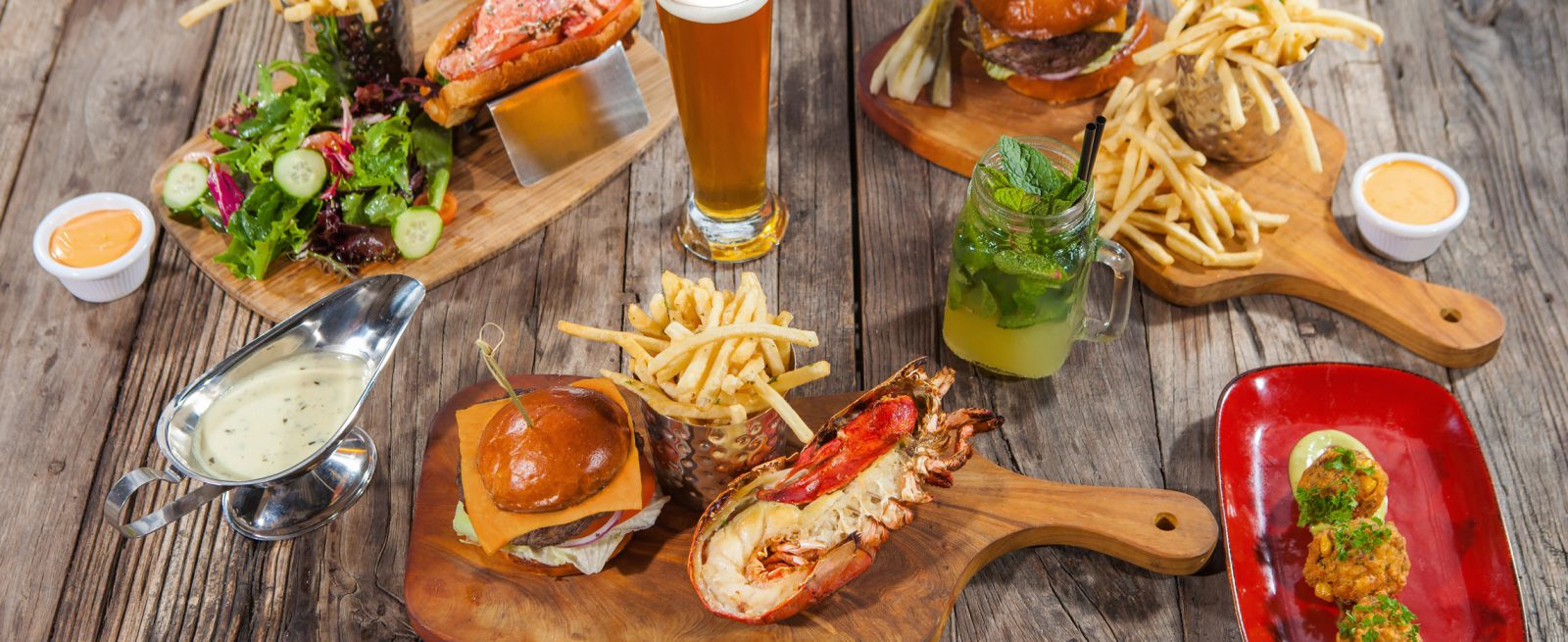Punchh Acquire and JBF’s Sustainable Seafood
17 Min Read By MRM Staff
This TGIF edition of MRM’s Daily Bite includes news from Punchh, James Beard Foundation, Ernst & Young, Hai Hospitality, Sofitel, Liberation Distribution, Impossible Foods and OpenTable.
Send news items to Barbara Castiglia at bcastiglia@modernrestaurantmanagement.com.

Punchh Introduces Acquire
Punchh announced a brand new product for their industry-leading Restaurant Marketing Cloud ™ platform, called “Punchh Acquire”, designed to address new customer acquisition. Punchh Acquire was designed to empower restaurants to bring in new customers through leading consumer networks like Apple Pay, Facebook, Instagram, Snapchat and more.
Once new customers visit for the first time, Punchh lets you get to know every customer across hundreds of locations at scale and assign them with digital identities and profiles, allowing restaurants to measure campaign efficacy and make adjustments in real time to help move that customer up the value chain toward brand loyalty.
“Our business is all about building relationships with customers because relationships grow revenue, but you simply can’t build a relationship with customers who remain digitally invisible – both those who are visiting for the first time and the ones who have already visited but have not established a relationship with your restaurant,” said Shyam Rao, CEO and co-founder of Punchh. “Once a customer makes a purchase in your restaurant, Punchh is already the single most powerful platform available for retaining and growing the lifetime value of that customer. With the launch of Punchh Acquire, our platform is now the only solution available to restaurants that allows them to turn these ‘invisible customers’ into first time patrons and begin building personal, lasting and profitable relationships.”
The new Punchh Acquire product empowers restaurants to market to new customers from the moment they walk through the door through a sophisticated mix of multi-channel marketing tools that integrate with any third-party ESP, SMS, Wifi including:
- eClub – enroll members and target them with tailored offers and coupons
- SMS – opt-in new customers and target them with tailored offers and
coupons via SMS - WiFi – turn anonymous customers into known customers when they
access WiFi, and target them with tailored offers and coupons - Apple Pay – target and acquire Apple Pay users into in-store rewards
programs - Bounce Back Offers – target anonymous guests with tailored offers on
receipts when they make purchases, to entice them to visit again and turn
them into known customers
Punchh’s network of restaurant customers includes more than 100 restaurant chains across the globe, representing more than $10B in annual spend by 20 million consumers. Four leading restaurant brands have already deployed the new Punchh Acquire product during its Beta test period, including Del Taco and others.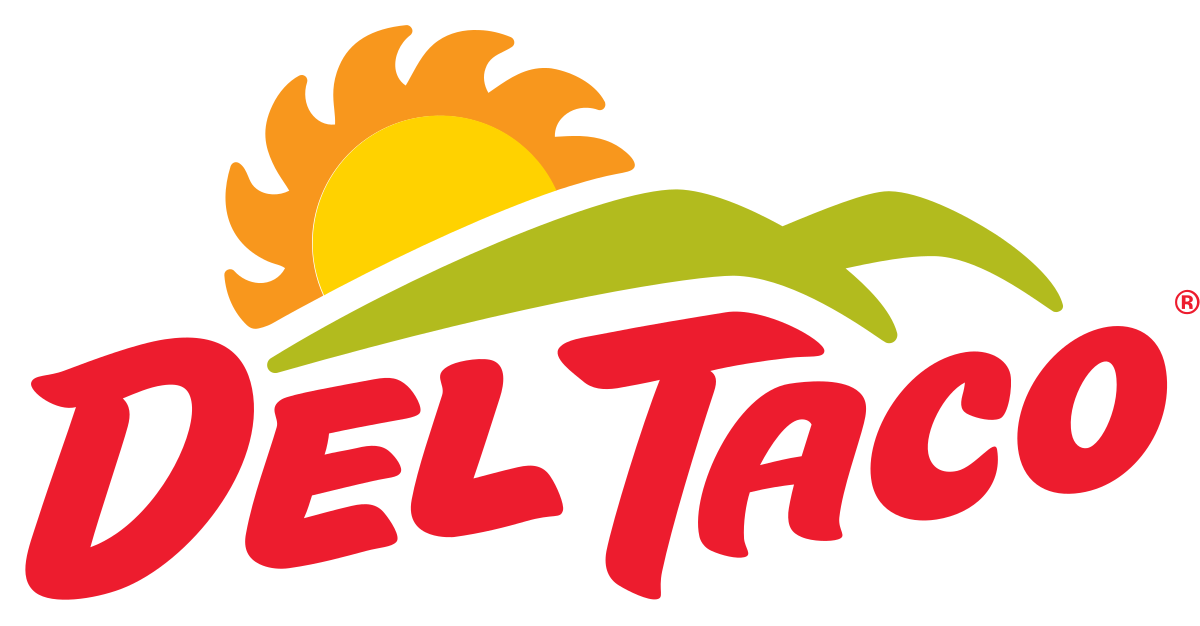
Punchh is also working with partners to deliver all of the different marketing channel components used in Punchh Acquire, including Twilio for SMS, Sendgrid for email, and leading in-restaurant WiFi providers.
JBF’s Sustainable Seafood Partners
As the public becomes more concerned with the sustainability of the seafood supply chain, James Beard Foundation (JBF) understands the importance of involving everyone who fishes, farms, and distributes seafood, along with chefs and consumers who buy, cook, and order it at restaurants. That’s why they created JBF’s new Sustainable Seafood Partnership program. The four purveyors who have joined at the foundational stage will lead a new effort to increase access to sustainable seafood.
Here are our first Sustainable Seafood Partners:
- Australis Barramundi knows that if we relied on wild fish alone, meeting our recommended two servings of fish a week would require four planet Earths. With this in mind, they’re working to make a hearty species of fish called barramundi a household name. By diversifying seafood options on menus in restaurants and at home, and by leveraging the minimal environmental impact of this fish, they’re ensuring healthier oceans for years to come.
- Blue Ocean Mariculture is the only open aquaculture farm in the United States, and the sole producer of Hawaiian Kanpachi. Farming a sashimi-grade species of yellowtail called kanpachi in the ocean off Hawaii sounds idyllic, but more importantly, it’s sustainable. Blue Ocean started with 15 wild fish as a brood stock and since then has brought half a million sustainably grown kanpachi to market.
- Skuna Bay craft-raises salmon in a natural ocean environment off Vancouver Island and stores fish in recyclable packaging during transport. At the center of their farming practices is an understanding that our planet needs more protein, and that increasing accessibility to sustainable seafood with the lowest carbon-generating food production systems on this planet is the best way to meet that demand.
- Verlasso raises salmon in Chilean Patagonia and was the first ocean-raised Atlantic salmon rated “Yellow” (or “Good Alternative”) by the Monterey Bay Aquarium Seafood Watch. Verlasso knows that sustainability in seafood is about balance, and brings this perspective into their approach to supporting the local Chilean economy and maintaining a healthy ocean environment.
These partners know that chefs and home cooks alike are shopping with taste and health in mind, and they want to make sure sustainability goes hand-in-hand with these priorities. Each partner is rated Yellow or above by Seafood Watch, with sustainability criteria based on wild and farmed seafood production. This criteria includes ensuring the fish have plenty of room to grow and swim, that nutritious feed is provided, and that their farms have a positive impact on the surrounding environment.
JBF’s Sustainable Seafood Partners will attend relevant industry events and public forums across the country, including JBF Sustainable Seafood Issue Summits and Culinary Labs. These events provide an opportunity for partners to engage chefs in discussions about the issues and offer hands-on experiential learning opportunities, including fish butchery and seafood tastings.
These partners may work with differing fish species and operate across borders or continents away from each other, but they are all hoping to open a space for more education and conversation about sustainable seafood with the chefs that serve it every day.
In addition to the Sustainable Seafood Partnership program, JBF is working to increase the sustainability of the seafood supply chain through the Smart Catch program. Smart Catch provides information and support to chefs and restaurants so they can serve seafood fished or farmed in environmentally responsible ways. Restaurants who are “Leaders” in the program are recognized with the Smart Catch emblem, distinguishing their business to consumers.
JBF has also extended Smart Catch standards to the historic James Beard House in New York City, which serves as a “performance space” for visiting chefs.
The Hatchery Chicago
Ernst & Young LLP (EY) has committed to sponsor The Hatchery Chicago, a food-and-beverage incubator that will support local food-and-beverage entrepreneurs by providing them with tools and resources to scale their businesses.

The Central Region Consumer Products and Retail Market Segment of EY serves and supports the dynamic food industry in the greater Chicago area, one of the largest global hubs for startups and large food manufacturing companies. With its sponsorship, EY will provide resources and experience through its commitment to entrepreneurship and, collectively, to the vast global food enterprises that the entrepreneurs serve.
“EY strengthens our communities through projects that support entrepreneurs, education and equity in the workforce,” said Managing Partner for EY’s Chicago office, Kim Simios. “The Hatchery provides a venue for food entrepreneurs to identify solutions that take their ideas from home recipes to global kitchens and distribution.”
With this investment, EY is committed to developing local talent as well as strengthening the Consumer Products & Retail industry.
“It is innovations started at The Hatchery that will continue disrupting the industry,” added the EY Central Region Consumer Products and Retail Market Segment Leader Kathy Gramling. “We hope that we can support the innovators and established food companies to collectively shape the future of the food industry.”
The Hatchery Chicago, a nonprofit, will provide a variety of services and space for food businesses, including food-grade space for approximately 100 startup or early-stage food entrepreneurs, shared kitchens, storage and office space, plus areas for workforce training sessions and community meetings. It will also offer access to grant funding opportunities, food buyers and bloggers.
“The Hatchery is revolutionary for food entrepreneurs in Chicago,” said Ernst & Young LLP Partner Greg Stemler. “The food landscape is changing quickly, and EY is excited to help entrepreneurs scale their business from concept to reality to be a first mover in the industry. This also provides the opportunity to connect established companies with new innovations in the market.”
A new 67,000-square-foot facility is scheduled to open in East Garfield Park by the end of 2018 and will support 150 jobs in its first year and 900 within five years. The project is a joint venture between Industrial Council of NearWest Chicago and Accion Chicago, made possible by $8 million in city funding plus support through the New Markets Tax Credit. It is also receiving support from many notable organizations locally.
“The Hatchery is proud to team with EY, one of the leading professional services firms in the world, to further enhance the food-and-beverage startup community in Chicago,” said CEO of The Hatchery Chicago, Natalie Shmulik. “We are excited to bring together top minds and lead strategists to assist our entrepreneurs with business development and accelerate their success.”
Loro to Debut in Austin
Chef Tyson Cole and Aaron Franklin said their restaurant, Loro, will open its doors to the public April 4. The Asian smokehouse is a part of Hai Hospitality, the restaurant group that counts Uchi and Uchiko in Austin; Uchi in Houston; Uchi and Uchiba in Dallas; and the soon-to-open Uchi in Denver among its concepts. This is Aaron Franklin’s first restaurant venture outside of his acclaimed, award-winning Franklin Barbecue in Austin.
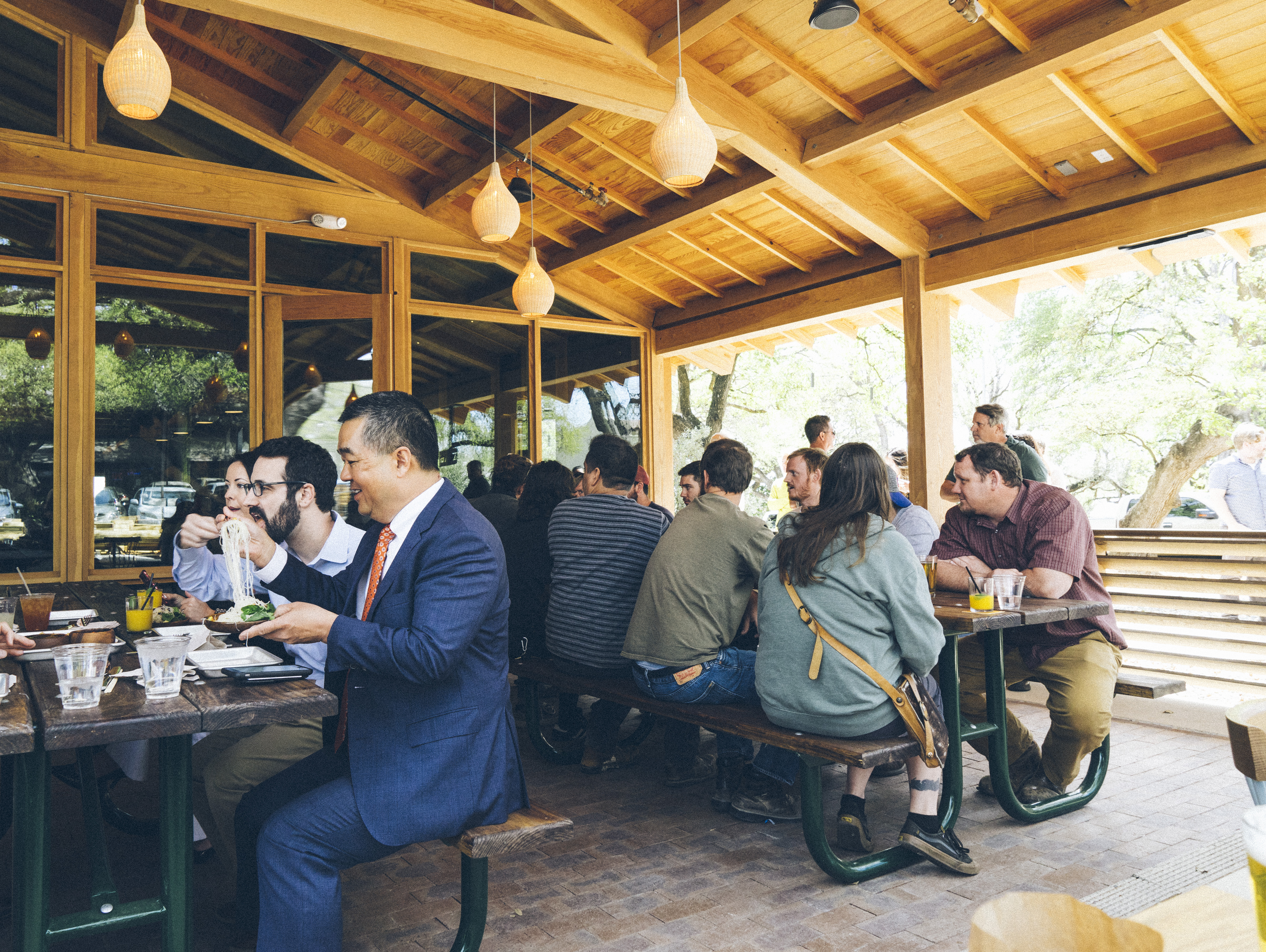
Photo by Logan Crable
On Thursday, March 29, Loro will host a preview party benefitting No Kid Hungry, the national non-profit organization dedicated to feeding children in the United States. Tickets are $100 and available through Eventbrite (here).
Upon entering Loro, guests will order food and beverages at the bar, seat themselves either indoors or outside, and will have their order brought to them at their table. Guests can visit the bar to refill orders. To-Go service will be available and encouraged, with a separate pick up area at the bar.
The menu was created by Cole and Franklin with Chef de Cuisine James Dumapit to offer a variety of dishes that balance Southeast Asian flavors with the rich texture of traditional Texas BBQ. The menu is divided into Snacks, Starters, Sandwiches, Rice Bowls, Plates and Sides. The entire menu is available throughout the day with the exception of the Smoked Beef Brisket, which is available only at dinner.
“The complex flavors of Southeast Asian food, ranging from the acidity in citrus, to heat from a variety of spices, to all the clean fresh flavors of the herbs, create a balance that is the perfect counterpoint to the richness of smoked meat,” said Cole. “You can come in and order a sandwich and a side for yourself or order a few things: a bowl, a sandwich and a few sides and plates and share everything…No Rules!”
“Suuper excited to for the opening of LORO. It is where I would be hanging out with my family, if I weren’t already here working,” added Franklin.
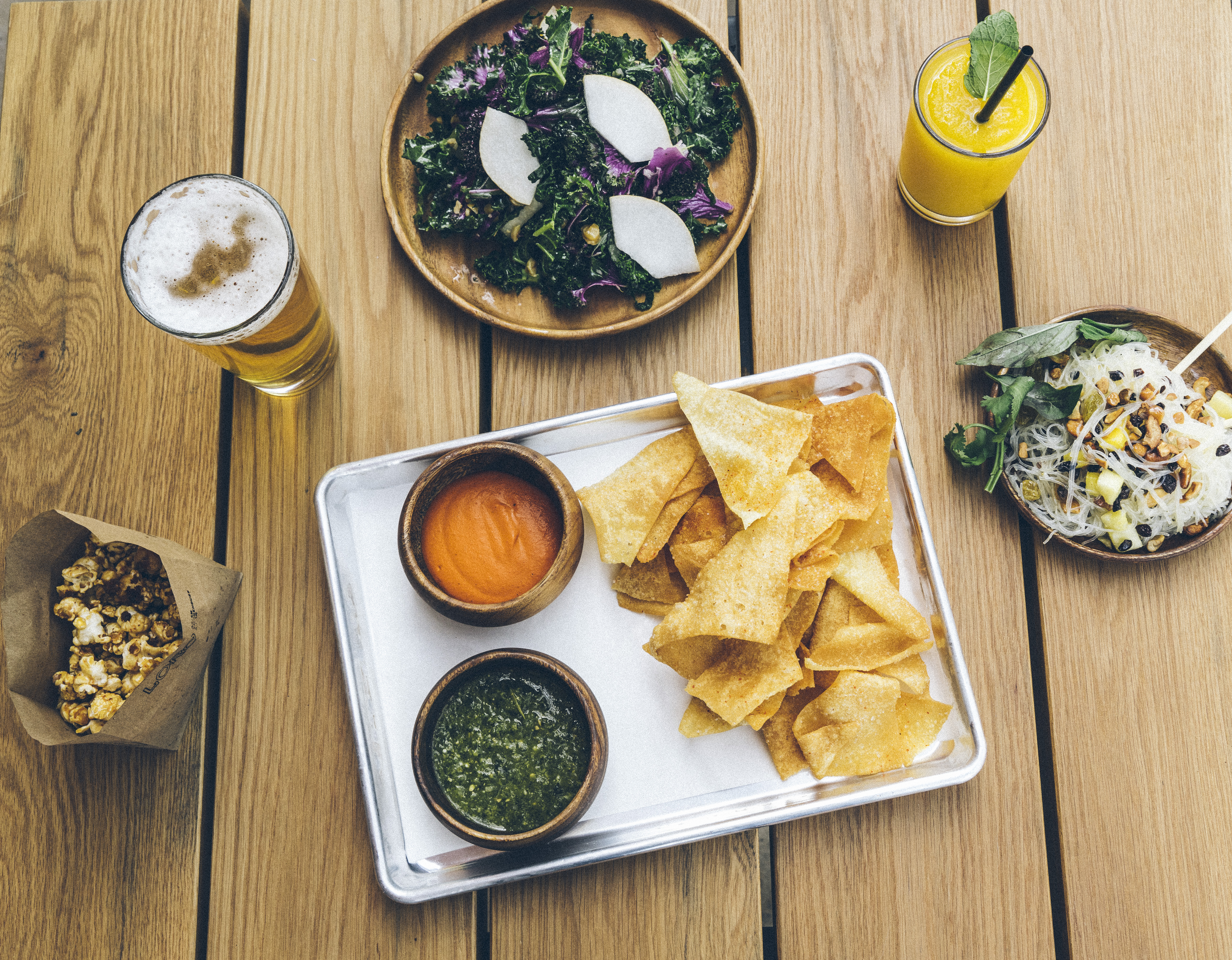
Highlights of the Loro menu include Candied Kettle Corn with burnt brisket ends topping; Oak-grilled Snap Peas served with a kimchee emulsion; Crunchy Sweet Corn Fritters coated in celery leaf batter, Thai herbs including galangal powder, lime juice and fish sauce; dry fried Chicken Karaage dressed with sweet chili gastrique and topped with fresh herb salad and spicy aioli on the side; Char Siu Pork Shoulder marinated in soy hoisin oyster sauce and fermented bean curd then roasted and grilled for a glazed caramelized finish; and Smoked Beef Brisket, a dinner-only dish that is marinated in Nuoc Mam and Thai gastrique and finished with herbs and chili oil.
The bar program, designed by Hai Beverage Director Chris Melton in concert with the culinary team, includes a menu of rotating batch cocktails; sake slushies; wine and sake on tap; and a selection of bottle and draft beer. Batch cocktails include TyKu Sake Slushy; Frozen Gin & Tonic; Ginger Old Fashioned; Peach Margarita; Lemongrass Daiquiri; Negroni and more to be added soon.
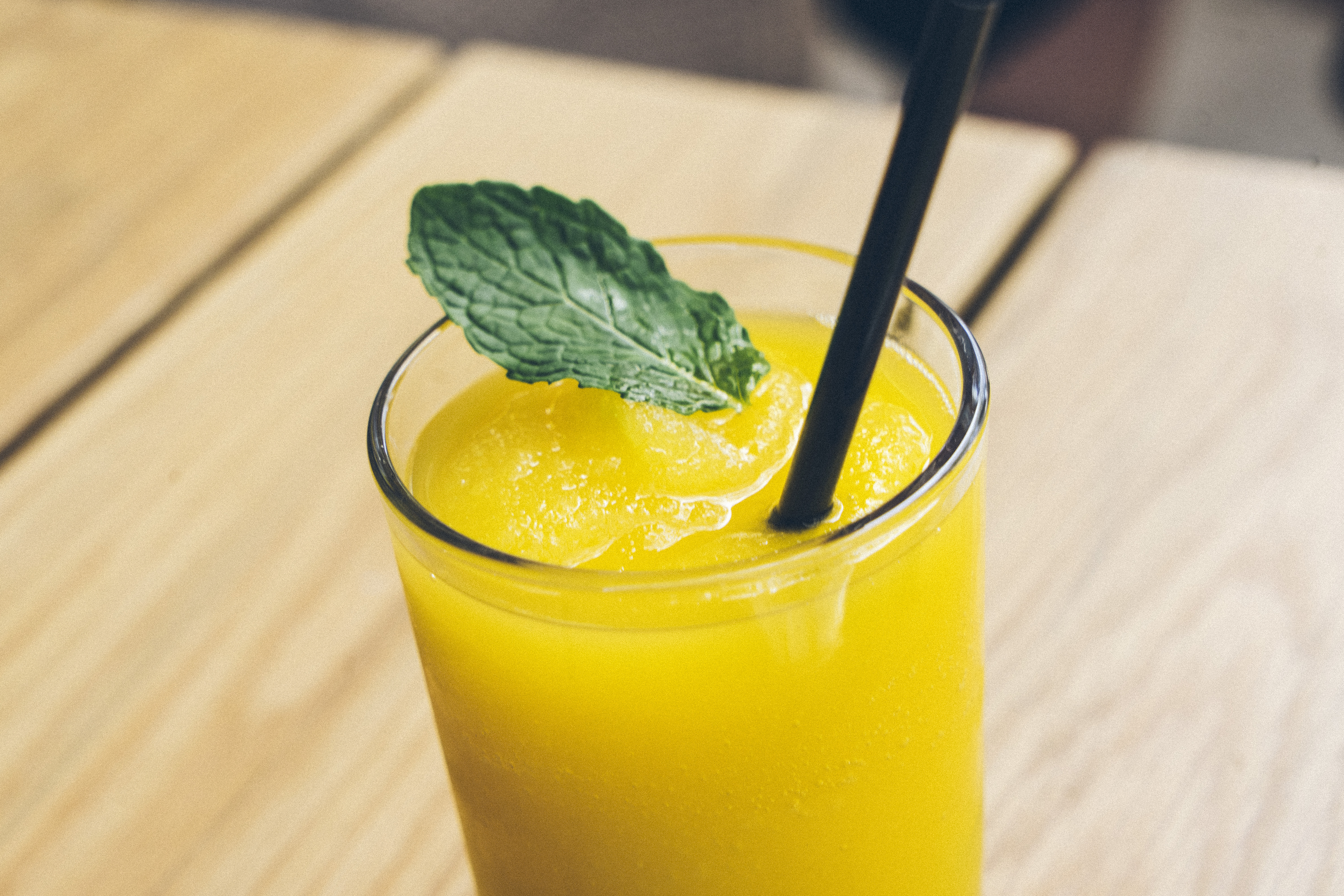
Photo by Logan Crable
Designed by Michael Hsu Office of Architecture in collaboration with interior designer Craig Stanghetta of Ste. Marie Design, Loro was inspired by the historic dance halls of the Texas Hill Country, where people regularly gather to eat, dance and connect. Loro’s brick façade and low-slung roof, tucked in a grove of century-old Heritage Live Oak trees, houses an inviting space reminiscent of a home passed down through generations, where reunions are every week rather than every year.
Inside, broad timber trusses create an expansive dining space. Large windows and a continuous skylight along the building’s roofline produce a space bathed in dappled light.
The selection of finishes, fixtures and furniture, selected for their natural tones and contrast of light and dark, were inspired by both Shaker style and Japanese design. Shou Sugi Ban, the Japanese wood charring technique, lines the interior walls which are accented by traditional Shaker peg racks. Large natural and white-glazed terracotta pendants hang above salvaged wood tables and inky-blue Windsor chairs. An impressive bar of American White Oak runs the length of the space and is complemented by steel beam footrests and brick and dark stained hardwood floors.
Under the oak canopy outside are a series of decks, patios and gravel gardens outfitted with relaxed seating options including rocking chairs, individual tables, and a 30-foot-long rough-hewn log banquette. Wicker lanterns and globes, as well as subtle landscape lighting, give the exterior of the restaurant an inviting glow.
Cattle & Claw Comes to Sofitel
Sofitel Los Angeles at Beverly Hills debuted Cattle & Claw, top photo. This pop-up eatery has a single purpose: to give in-the-know omnivores a place to enjoy two of the world’s favorite foods – lobsters and burgers.
Cattle & Claw is located in the heart of Los Angeles’ best-known foodie destination, located where Beverly Hills and WeHo meet along La Cienega’s Restaurant Row.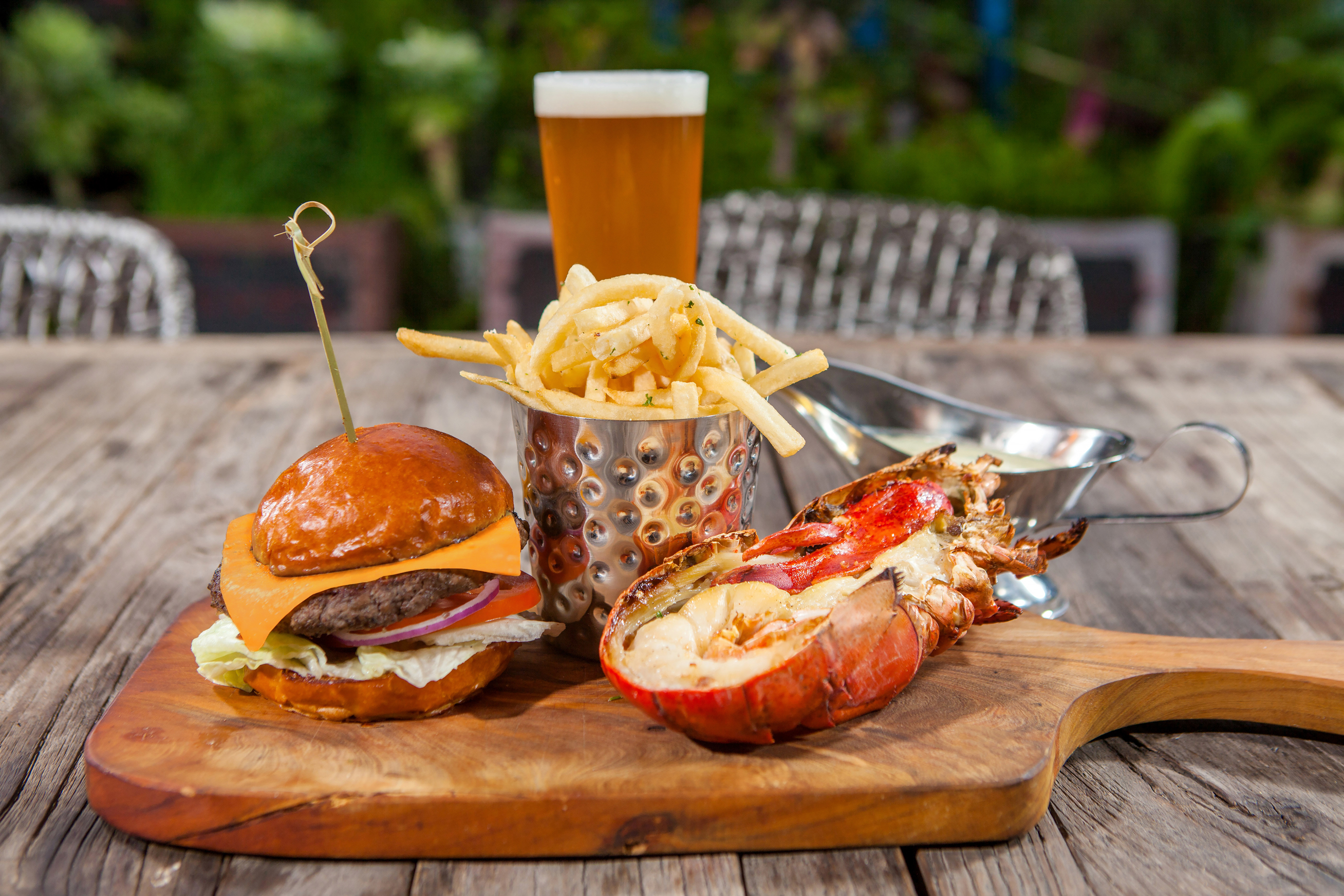
Guest will find five-ounce burgers or a larger ten-ounce patty crowned with roasted red pepper and garlic mayonnaise. Add in truffle fries or sweet potato fries, match it all up with a craft beer. Lovers of the lobster claw will simply skip the beef and dive right into a piced lobster roll served up on a homemade bun drizzled with a tangy remoulade sauce or perhaps choose a lobster-tomato-arugula salad enhanced with a Champagne vinaigrette. There will even be lobster beignets on the pop-up menu, presented with a lobster aioli sauce.
Of course, purists will happily enjoy the half or whole lobsters also found on the Cattle & Claw menu, with tarragon cream for dipping; and patrons who cannot choose between having a burger or a lobster will love the five-ounce burger and half lobster combo, served along with fries and salad. For those looking to splurge, there is the two lobster roll, two five-ounce burger, and whole lobster combo, also served with fries and salad.
Cattle & Claw’s libations round out whatever menu favorites you choose, with curated cocktails designed to pair perfectly with either surf, turf or both, like a Lobster Bloody Mary or a Classic Mojito; or simply ask for a local brew or glass of California’s best wine.
LibDib Turns One


Impossible Burger at More Than 1,000 Restaurants
Impossible Foods’ flagship product, the award-winning Impossible Burger, is now available in more than 1,000 restaurants nationwide. The California startup’s first large-scale factory is now at full production. The 67,000-square-foot plant in East Oakland is now producing 500,000 pounds of plant-based meat per month — enough to feed Impossible Burgers to 2 million people per month. Impossible Foods plans to add a second shift to double capacity this summer.
“We are proud of the dedicated and passionate team in Oakland. They achieved world-class quality on an ambitious timeline,” Impossible Foods CEO and Founder Patrick O. Brown, M.D., Ph.D., said today. “But there are still millions of restaurants and billions of people who want meat. So while achieving full capacity at our first plant is an important milestone, it’s just the beginning. We won’t stop until the global food system is truly sustainable.”
Impossible Foods launched production in Oakland in September 2017. In addition to supplying Impossible Burgers to more than 1,000 restaurants nationwide, the plant will begin shipping burgers to Asia for the company’s international debut later this year.
Impossible Foods currently employs nearly 300 people, including 50 people in Oakland. The company is also actively recruiting scientists to join its world-class R&D team in Redwood City.
Earlier this week, the Oakland favorite Shakewell became the 1,000th restaurant to begin serving the Impossible Burger. The Mediterranean-inspired restaurant was started by Top Chef alums Jen Biesty and Tim Nugent. True to the restaurant’s Spanish and Moroccan heritage, Shakewell serves the Impossible Burger as savory keftas and meatballs.
According to data supplied by restaurants, adding the Impossible Burger to a restaurant’s menu increases guest headcount by up to 13 percent compared to outlets in the same chain that do not have the Impossible Burger. In addition, adding the Impossible Burger to a restaurant’s menu increases gross sales by up to 30 percent year-over-year compared to restaurants in the same chain that do not have the burger.
The Impossible Burger is the only plant-based burger that’s featured in America’s most beloved “better burger” concepts FatBurger, Umami Burger, Hopdoddy, The Counter, Gott’s and B Spot, the Midwest burger restaurant owned by Chef Michael Symon.
Starting next week on opening day, the Oakland Alameda Coliseum will become the first professional sports stadium to serve the Impossible Burger. The Impossible Burger is also served on university campuses include the University of California system, Stanford University, University of Chicago and others.
“The food business is one of the most competitive sectors in America — and the Impossible Burger is one of those rare menu items that brings new customers in the door and keeps people coming back,” said Impossible Foods Senior Vice President of Sales Stephanie Lind. “We want to help entrepreneurs increase revenue by providing a product that’s good for people and the planet.”
In development since 2011, the Impossible Burger debuted in July 2016 at Chef David Chang’s Momofuku Nishi in Manhattan and won a 2017 Tasty Award for best food startup.
The Impossible Burger is produced without hormones, antibiotics, cholesterol or artificial flavors. It uses about 75 percent less water, generates about 87% fewer greenhouse gases, and requires around 95 percent less land than conventional ground beef from cows.
The Impossible Burger is made from simple ingredients, including water, wheat protein, potato protein and coconut oil. One special ingredient — heme — contributes to the characteristic taste of meat and catalyzes all the other flavors when meat is cooked. Impossible Foods discovered how to produce large quantities of heme through fermentation, transforming the Impossible Burger into a carnivore’s delight that’s light on the planet. Impossible Foods is also developing additional plant-based meat and dairy products.
OpenTable’s Big Night Out
OpenTable released its list of 100 Best Restaurants in America for a Big Night Out. Whether searching for an upbeat locale for drinks with the girls, show stopping views for an anniversary celebration, or lively ambience for a birthday surprise, the top 100 list delivers on delicious fare with flair – the perfect backdrop for a fun night out.
“The list features an array of buzzworthy restaurants, from up-and-coming to established, trendy to tried-and-true, across 24 states and Washington D.C.” said Caroline Potter, Chief Dining Officer at OpenTable. “Whatever your notion of a big night out entails, whether it’s a bustling bar scene or a spot to see-and-be-seen, fun is on the menu at any of these honorees.”
With 18 restaurants on the list, California claimed the highest number of restaurants for a night on the town, with Florida in hot pursuit with 17. Fifty cities, from coast to coast, are also featured. New Yorkand Las Vegas appear more than any other destination on the list; though trailing closely behind is Chicago with seven restaurants, including Girl & the Goat and RPM Italian & RPM Steak.
The list of the 100 Best Restaurants for a Big Night Out is generated solely from more than 12 million verified OpenTable diner reviews collected between February 1, 2017, and January 31, 2018. All restaurants with a minimum “overall” score and number of qualifying reviews were included for consideration. Qualifying restaurants were then scored and sorted according to the percentage of reviews for which “hot spot” was selected as a special feature.
Based on this methodology, the following restaurants, listed in alphabetical order, comprise the 100 Best Restaurants for a Big Night Out in America for 2018, according to OpenTable diners.
- Al Biernat’s – Oak Lawn – Dallas, Texas
- Andina – Portland, Oregon
- Battalion – San Antonio, Texas
- Beauty & Essex – Multiple Locations
- Bestia – Los Angeles, California
- Blend on the Water – Long Island City, New York
- The Boathouse – Lake Buena Vista, Florida
- Brewery Bhavana – Raleigh, North Carolina
- Buddakan – Multiple Locations
- Campfire – Carlsbad, California
- Campiello– Naples, Florida
- Carmine’s – 44th Street – New York, New York
- Carnivale – Chicago, Illinois
- Carson’s Food & Drink – Lexington, Kentucky
- Catch – Multiple Locations
- Charlie’s of Bay Head – Bay Head, New Jersey
- Coasterra – San Diego, California
- Compère Lapin – New Orleans, Louisiana
- Cooper’s Hawk Winery & Restaurant – Multiple Locations
- Del Frisco’s Double Eagle Steak House – Philadelphia, Pennsylvania
- Departure Restaurant and Lounge – Portland, Oregon
- Double Knot – Philadelphia, Pennsylvania
- Duck Duck Goat – Chicago, Illinois
- El Five – Denver, Colorado
- El Vez – Philadelphia, Pennsylvania
- Flight Restaurant & Wine Bar– Memphis, Tennessee
- Gato – New York, New York
- Giada – The Cromwell – Las Vegas, Nevada
- Gibsons Bar & Steakhouse– Chicago, Illinois
- Girl & the Goat – Chicago, Illinois
- Gordon Ramsay Steak – Paris Las Vegas – Las Vegas, Nevada
- Gracias Madre – West Hollywood, California
- GW Fins– New Orleans, Louisiana
- Halls Chophouse– Charleston, South Carolina
- Harp & Crown – Philadelphia, Pennsylvania
- Hell’s Kitchen Minneapolis– Minneapolis, Minnesota
- Herb & Wood– San Diego, California
- Husk – Charleston– Charleston, South Carolina
- Ironside Fish & Oyster–San Diego, California
- Ivan Ramen– New York, New York
- Ivy– West Hollywood, California
- Juniper & Ivy– San Diego, California
- Juvia– Miami, Florida
- Kaluz Restaurant– Fort Lauderdale, Florida
- Komodo– Miami, Florida
- KYU– Miami, Florida
- The Lark– Santa Barbara, California
- Le Diplomate– Washington, DC
- Linger– Denver, Colorado
- Louie Bossi’s Ristorante Bar Pizzeria– Fort Lauderdale, Florida
- LUCA– Lancaster, Pennsylvania
- Maple & Ash– Chicago, Illinois
- Mariposa– Sedona, Arizona
- Mastro’s Ocean Club– Newport Beach, California
- Meril– New Orleans, Louisiana
- Moku Kitchen– Honolulu, Hawaii
- Momofuku Las Vegas– Las Vegas, Nevada
- Mora Italian– Phoenix, Arizona
- Morimoto Asia– Lake Buena Vista, Florida
- Myers + Chang– Boston, Massachusetts
- Nobu – Caesars Palace Las Vegas– Las Vegas, Nevada
- North Italia – BLVD– Houston, Texas
- Ocean Prime – Naples, Florida
- Old Ebbitt Grill– Washington, DC
- The Optimist– Atlanta, Georgia
- Otium– Los Angeles, California
- Oxford Exchange– Tampa, Florida
- Parc– Detroit, Michigan
- The Pearl– Columbus, Ohio
- Perch LA– Los Angeles, California
- Pump– West Hollywood, California
- Red Ash Italia– Austin, Texas
- Red Rooster Harlem– New York, New York
- Republique– Los Angeles, California
- RPM Italian & Steak – Multiple Locations
- Sacred Pepper – Tampa, Florida
- Sampan– Philadelphia, Pennsylvania
- Sixty Vines– Plano, Texas
- Sotto– Cincinnati, Ohio
- Southern Social– Germantown, Tennessee
- St. Elmo Steak House – Indianapolis, Indiana
- Steak 44– Phoenix, Arizona
- Steak 48– Houston, Texas
- Steve & Cookie’s By the Bay– Margate, New Jersey
- STK– Multiple locations
- SumoMaya Mexican – Asian Kitchen– Scottsdale, Arizona
- Tao– Multiple locations
- The Tropicale– Palm Springs, California
- Town– San Carlos, California
- TWO urban licks– Atlanta, Georgia
- Uchi– Austin, Texas
- Ulele–Tampa, Florida
- Uncle Julio’s – Brentwood– Brentwood, Tennessee
- Urban Grub– Nashville, Tennessee
- Vandal– New York, New York
- Water Grill – South Coast Plaza – Costa Mesa, California
- Woodberry Kitchen – Baltimore, Maryland
- Yardbird Southern Table & Bar – Miami Beach, Florida
- Yvonne’s– Boston, Massachusetts
- Zahav– Philadelphia, Pennsylvania

